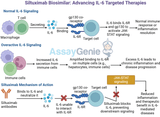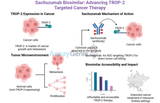Psychiatric disorders & LCN2
By Ana Catarina Ferreira, PhD Candidate, Univeristy of Minho, Portugal
Psychiatric disorders, including anxiety and depression, are highly prevalent conditions and their incidence is expected to increase as individuals attempt to meet the crescent demands of the current society. Such disorders are quite often long lasting and considered to occur, among other factors, as the result of the chronic exposure to psychological stress, thus severely affecting the quality of life and work productivity.
Regulation of Emotional Behaviours
In the regulation of emotional behaviours and cellular and endocrine responses to stressful events, the limbic system, and particularly the hippocampus, plays a fundamental role as a central target and executor of adaptive responses. Endowed by unique structural and cellular plasticity, the hippocampus is one of the few brain regions in the adult brain where, throughout life, resident neural stem cells continuously give rise to new functional and mature neural cells. This is considered one of the most robust forms of neural plasticity occurring during adulthood. As a highly dynamic process, the process of generating new neurons is achieved through a stereotypic developmental sequence, controlled by the interplay between neurogenic niche-derived signals and intracellular pathways. The newly generated neurons will then integrate into the local neuronal circuits and fulfill important functions in hippocampal plasticity and function. In fact, it has been shown that adult hippocampal neurogenesis buffers stress responses and depressive behaviors, and that impaired neurogenesis contributes to the pathophysiology of several neurodegenerative diseases and neuropsychiatric pathologies. Also, some authors have reported the requirement of hippocampal neurogenesis for the behavioral effects of antidepressants. In this sense, the demonstration of an active neurogenic process in the adult brain opens perspectives for central nervous system repair strategies and therapy. This, in turn, urges the need for the identification of the specific factors that can control neural stem cells maintenance and neuronal integration, for an overall proper brain functioning. Specifically, how the modulation of hippocampal neurogenesis, by key event regulators, including glucocorticoids and glucocorticoid-responsive genes, can be contributing to the regulation of psychiatric disorders?
Lipocalin-2 (LCN2)
In this context, Lipocalin-2 (LCN2), a member of the family of over 20 small secreted proteins serving diverse cellular roles, has caught my attention since it is upregulated by glucocorticoids and has been implicated in tissue restructuring, organ involution, and cellular invasiveness in other systems rather than the brain (Prog Neurobiol;10.1016/j.pneurobio.2015.06.005). However, evidence showing its importance in regulating brain homeostasis and behaviour was scarce. In this sense, in the last few years, I’ve been focused on identifying LCN2 as a key regulator of adaptive responses at the cellular and behavioral levels, particularly in the hippocampus. Using a mouse model with the deletion of the Lcn2 gene (LCN2-null mice), I’ve aimed at exploring LCN2’ importance in the regulation of brain functioning and cell genesis during adulthood, and how its absence could contribute to the precipitation of neuropsychiatric conditions by regulating peculiar cellular events. Interestingly, molecular and cellular analysis in the hippocampal brain region revealed that LCN2 is an important regulator of neural plasticity in the form of dendritic spine morphology, and in hippocampal synaptic activity (Front Cell Neurosci, 2015; 10.3389/fncel.2013.00122). Moreover, the absence of LCN2 induced deficits in neural stem cells cell cycle progression, proliferation and commitment, rendering fewer new neural cells in the hippocampus (Mol Psychiatry, 2017; 10.1038/mp.2017.95).
Consequently, all these deficits translated into abnormal emotional and mood behaviors, suggesting the importance of LCN2 in regulating cell genesis and other forms of neural plasticity to control hippocampal function. In fact, this importance became even more clear when LCN2-null mice were challenged with the chronic administration of corticosterone, to mimic a chronic stressful event, and presented no cellular or behavioral response.
LCN2 and Neural Plasticity
Together, the work that I’ve been developing in the last years has contributed to our understanding on the existence of novel regulator of brain function, and in the identification of LCN2 as a novel molecular player in neural plasticity. Moreover, it unravels new and unique underlying mechanisms in the process of adult hippocampal neurogenesis in the context of the physiological brain, with importance for brain homeostasis maintenance. Also, this added new and important evidence on the way we understand and perceive the process of adult neurogenesis, shedding light on the basic principles of adult plasticity, with future implications in regenerative strategies.

window.SHOGUN_IMAGE_ELEMENTS = window.SHOGUN_IMAGE_ELEMENTS || new Array(); window.SHOGUN_IMAGE_ELEMENTS.push({ hoverImage: '', uuid: 's-faf84201-38cb-4ca7-b279-24b96c9ebddd' })
Recent Posts
-
Tigatuzumab: Advancing Cancer Research with Targeted Therapies
Tigatuzumab is a monoclonal antibody targeting death receptor 5 (DR5), a member of the …21st Jan 2025 -
Siltuximab: Exploring IL-6 Inhibition in Castleman’s Disease and Research
Quick Facts About SiltuximabWhat is Siltuximab?Siltuximab is a monoclonal antibody tar …16th Jan 2025 -
Sacituzumab: Exploring its Role in Cancer Research and the Rise of Biosimilars
Key Facts About SacituzumabWhat is Sacituzumab?Sacituzumab is an antibody-drug conjuga …16th Jan 2025




